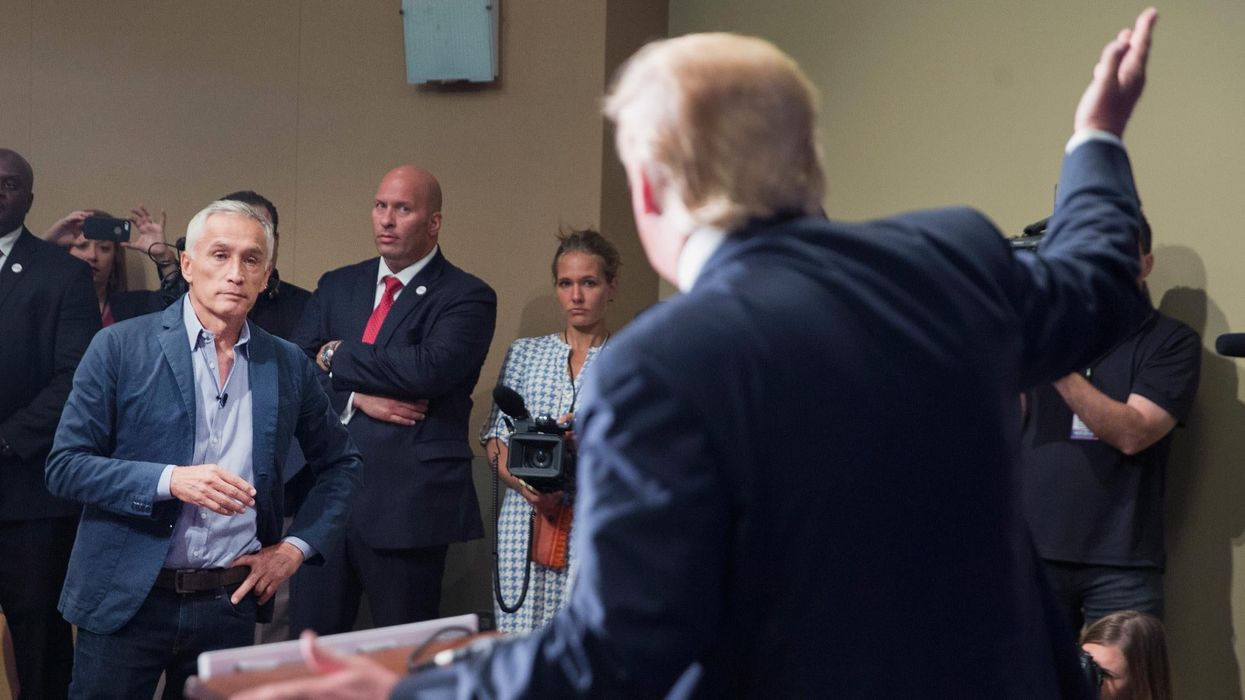Louis Dor
Feb 21, 2017

Picture:
Scott Olson/Getty Images
Donald Trump has been rebuked in recent months for attempting to smear some of the most respected news outlets in the world as "fake news," simply because he doesn't like their stories...
... While promoting a sycophantic morning show instead:
The distinction between fake news - news stories that are untrue and fabricated entirely to pander to a partisan audience - and news stories based around facts but appealling in tone to a publication's bias, is increasingly being blurred.
This is in part thanks to Donald Trump's lazy slander "fake news".
Don Lemon recently protested this lazy disregard for accuracy on CNN:
So the question is, who is reading the fake news and how do you distinguish between a story that is biased against your viewpoint, and a fake news story?
When it came to the United States presidential election, Pew Research Center, interestingly, found that young people were far more likely to regularly read about the election through established and reliable national news outlets than their elders, who were more likely to read local newspapers:
So who falls for fake news?
One fake news entrepreneur told NPR the simplest market is conservatives of all ages:
We’ve tried to do [fake news with] liberals. It just has never worked, it never takes off.
You'll get debunked within the first two comments and then the whole thing just kind of fizzles out.
However, this is just one person's opinion - the real answer is seems far more complicated.
Psychological studies have shown that conservatives are more receptive to stories about, for example, fake terrorism attacks - because they are more attuned to hazards in the world.
Liberals tend to value opportunities afforded by change, while conservatives see safety in cultural status quo.
It's not that liberals are smarter, it's that they have different reasons for debunking a news story.
Ulm University’s Stefan Pfattheicher told the Washington Post:
This seems to be more a matter of motivation to process information (or news) in a critical, reflective thinking style than the ability to do so.
Facebook is starting to take measures to combat the spread of fake news on the social network, including introducing ways of tagging dubious posts as unfounded and tweaking the number of people the post can reach.
In a statement, the company said:
If a post is likely to be authentic based on the new signals we look at, it might show up higher in your feed.
The only problem is if hundreds or thousands of people flag something as authentic that isn't, or something as inauthentic when it is true.
In the era of partisan Facebook pages accruing millions of followers it's simple enough to see this happening.
More: Fake news isn't a new concept - Hitler called it 'lügenpresse'
Top 100
The Conversation (0)













